CQC: Published Article Regarding “The Benefits of CQC Certification for China”
Previously, we informed you that in April of 2015 the executive director of MPR China Certification GmbH, Mr. Julian Busch, submitted an article regarding the “The Benefits of CQC Certification for China” to “In Compliance Magazine”. You can also find this article in the “In Compliance Magazine” dated May 2015. The article is directed to manufacturers looking to sell their products into the Peoples Republic of China (PRC) and discusses some of the required regulations that manufacturers will need to understand and comply with before they can ship and sell their products into China.
The article addresses the following topics:
- Non-Transparent Certification Requirements
- Ongoing Regulation Changes
- Problems with Chinese Customs Clearance
- Voluntary CQC Certification – A Solution For More Than Customs Issues
- Advantages for CQC Certificate Holders When Regulatory Changes Occur
The published article can be read online here.
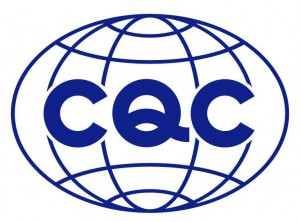 The Chinese certification authority CQC (China Quality Certification Centre, chin. „中国质量认证中心“) regularly publishes new announcements on their official website regarding products that require CCC certification as well as products that can be certified with a Voluntary CQC Mark Certification. It is the responsibility of the shipper and/or manufacturer to carefully check every product they are shipping, and to fully understand the applicable regulations beforehand.
The Chinese certification authority CQC (China Quality Certification Centre, chin. „中国质量认证中心“) regularly publishes new announcements on their official website regarding products that require CCC certification as well as products that can be certified with a Voluntary CQC Mark Certification. It is the responsibility of the shipper and/or manufacturer to carefully check every product they are shipping, and to fully understand the applicable regulations beforehand.
Each product category of the Voluntary CQC Mark Certification has its own Certification Rule, which are based on the National GB Standards. The Certification Rules have a corresponding Implementation Rule which the product must comply with in order to get a Voluntary CQC Mark Certification. The Implementation Rules can be found on the official website of the CQC. New Voluntary CQC Mark Certification products and product categories are posted on the website frequently along with important information regarding certification application start dates.
You can find more information about the Voluntary CQC Mark Certification here.
Mr. Julian Busch has published numerous articles for magazines as well as online platforms regarding entry into the Chinese market and the requirements to enter the Chinese market. A summary of all his publications is available here.
If you have any questions regarding Voluntary CQC Mark Certification, please don’t hesitate to contact us any time. Write an email or call us directly. Call us directly (UK: +44 2071931135, Rest of Europe: +49-69-2713769150, US: +1 773 654-2673) or send us an email.
CQC: Changes in the Voluntary CQC Mark Certification for Road and Street Lighting
The Chinese certification authority CQC (China Quality Certification Centre, chin. „中国质量认证中心“) regularly publishes new announcements on their official website regarding products that fall under the mandatory CCC certification as well as products that can be certified with a Voluntary CQC Mark certification.
In November of 2014 (“Announcements Regarding Voluntary CQC Mark Certification”) we informed you about the CQC announcements regarding the Voluntary CQC Mark Certification. The CQC updated and changed now the standards and regulations for the voluntary CQC Mark Certification for Luminaires for Road and Street Lighting. The old GB-Standard for Street Lighting GB7000.5-2005 has been replaced with GB-Standard GB7000.203-2013 and became effective on July 1, 2015.
The manufacturers will need to make certain adjustments in their street lighting designs. There are three crucial changes:
1) Added maximum installation height: The manufacturers should state the maximum streetlight installation height in the user manual. When the stated height exceeds 5 meters, luminaires with glass casings must meet the safety regulations as prescribed in GB7000.203-2013.
2) Amendments in test requirements for glass cover safety: Since the previous GB standard only regulated pane tests, the new GB standard now includes the new glass cover tests for glass casing products as curved glass lamp casings. Thus the glass must meet the following conditions:
- Curved glass must be shatter proof up to 5 Joules upon impact.
- Square glass with an area of 50mm x 50mm shatters upon impact, it must shatter in to more than 20 pieces.
3) Temperature limit of glass casings: Glass casing should be used under the manufacturers stated temperature limit. This includes the minimum and maximum temperature limit as well as the greatest Δt value.
 Each product category of the Voluntary CQC Mark Certification has its own Certification Rules. The Certification Rules are based on the National GB Standards. It is important that the products that are within the product range comply with the corresponding Certification Rules. Like the Implementation Rules for mandatory CCC certification products, the CQC Certification Rules are published on the official website of the certification authority CQC regularly. New Voluntary CQC Mark Certification products and product categories are posted on the website frequently along with important information regarding certification application start dates.
Each product category of the Voluntary CQC Mark Certification has its own Certification Rules. The Certification Rules are based on the National GB Standards. It is important that the products that are within the product range comply with the corresponding Certification Rules. Like the Implementation Rules for mandatory CCC certification products, the CQC Certification Rules are published on the official website of the certification authority CQC regularly. New Voluntary CQC Mark Certification products and product categories are posted on the website frequently along with important information regarding certification application start dates.
The Chinese certification authority CQC often publishes important announcements on their website. It is worthwhile to glance at the official CQC website from time to time, and to check out our News page where you will find updates regarding new announcements from the certifying authorities.
You can find more information about the Voluntary CQC Mark Certification here.
If you have any questions regarding Voluntary CQC Mark Certification, please don’t hesitate to contact us any time. Write an email or call us directly. Call us directly (UK: +44 2071931135, Rest of Europe: +49-69-2713769150, US: +1 773 654-2673) or send us an email.
CCC: Expiration of Deadlines for Updating CCC Certificates
In July 2014, for example, updated GB standards for rear-view mirrors (GB 15804), side markers (GB 18099) as well as for door locks and retentions (GB 15086) were implemented. Previously new standard for safety belts (GB 14166) and for child restraint systems (GB 27887) were released.
The Chinese authorities have defined certain deadlines for existing CCC certificates to be updated. Failure to do so will result in the Chinese certification body to initially suspend and then finally cancel the certificate, due to non-compliance. Once a certificate has been suspended or cancelled it is illegal to export these goods to China.
The transition period for rear-view mirrors, door locks and retentions was July 1, 2015. Since this deadline has already passed CCC certificates which still show the old standards are not valid anymore and there is a high risk of parts being detained at Chinese customs. The transition period for side markers will end June 31, 2016. All manufacturers wishing to continue shipping their products to China will need to make sure they update their certificates prior to this date to remain in compliance.
Starting September 1, 2015 child restraint systems will be required to have CCC certification. After this date they cannot enter Chinese market without a valid CCC certificate and a CCC mark. Manufacturers of child seats who did not start the China CCC certification process for their products yet, will not meet the deadline. This is because the CCC process takes several months and the product tests are extensive and complex.
 CCC certificate holders should stay up to date regarding the latest developments to the Chinese CCC regulations. The Chinese certification authorities CCAP (China Certification Centre for Automotive Products) and CQC (China Quality Certification Centre) regularly issue announcements on their websites, but they do not send any information or newsletters to certificate holders.
CCC certificate holders should stay up to date regarding the latest developments to the Chinese CCC regulations. The Chinese certification authorities CCAP (China Certification Centre for Automotive Products) and CQC (China Quality Certification Centre) regularly issue announcements on their websites, but they do not send any information or newsletters to certificate holders.
Are you looking for more information regarding new Chinese standards? Do you need more information regarding regulatory updates? Or do you have a part where you are unsure whether it needs CCC certification? If so, please call or email us anytime. We can be reached by phone (UK: +44 2071931135, US: +1 773 654-2673) or email for any questions or concerns you may have.
For more detailed information please download our free booklet “CCC Made Easy” here. You may also consider our book “A Brief Guide to CCC: China Compulsory Certification”, which can be ordered directly on Amazon here.
CQC: CQC Published Information on GB Standards for Industrial Terminal Blocks
The CQC (China Quality Certification Centre, in Chinese: 中国 质量 认证 中心), recently published a notification on the updated safety regulations for the certification of industrial terminal blocks.
Many CQC certificates for industrial terminal blocks have reached the end of their validity and manufacturers will need to apply for a renewal of their certificates. The CQC recently published information regarding changes in certification regulations. According to the CQC to extend their CQC certificates the affected manufacturers of industrial terminal blocks will continue to refer to the GB Standard GB/T 14048.18-2008 and will also need to follow safety regulation CQC11-462123-2009. The CQC regulation includes changes on the requirements for the factory audit. It is the responsibility of the certificate holder to apply for an extension and make the necessary changes to remain in compliance. If the certificate will not be renewed it will automatically be cancelled.
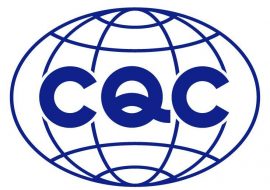 The CQC website regularly publishes new announcements about products that require CCC China Certification as well as products that can be certified with a Voluntary CQC Mark Certification. It is the responsibility of the shipper and/or manufacturer to carefully check every product and to fully understand the applicable regulations prior to shipping. Each product category of the Voluntary CQC Mark Certification has its own Certification Rules, which are based on the National GB Standards. The Certification Rules have a corresponding Implementation Rule which the product must comply with in order to get a Voluntary CQC Mark Certification. The Implementation Rules can be found on the official website of the CQC. New Voluntary CQC Mark Certification products and product categories are posted on the website frequently along with important information regarding certification application start dates.
The CQC website regularly publishes new announcements about products that require CCC China Certification as well as products that can be certified with a Voluntary CQC Mark Certification. It is the responsibility of the shipper and/or manufacturer to carefully check every product and to fully understand the applicable regulations prior to shipping. Each product category of the Voluntary CQC Mark Certification has its own Certification Rules, which are based on the National GB Standards. The Certification Rules have a corresponding Implementation Rule which the product must comply with in order to get a Voluntary CQC Mark Certification. The Implementation Rules can be found on the official website of the CQC. New Voluntary CQC Mark Certification products and product categories are posted on the website frequently along with important information regarding certification application start dates.
You can find more information about the Voluntary CQC Mark Certification here.
If you have any questions regarding Voluntary CQC Mark Certification, please don’t hesitate to contact us any time. Write an email or call us directly. Call us directly (UK: +44 2071931135, Rest of Europe: +49-69-2713769150, US: +1 773 654-2673) or send us an email.
CQC: CQC Published Information on GB Standards for the CCC Certification of Household and Electrical Appliances, Vacuum Cleaners and Water Suction Appliances
The CQC (China Quality Certification Centre, in Chinese: 中国 质量 认证 中心), recently published an updated GB Standard for household and similar electrical appliances, vacuum cleaners and water suction cleaning appliances.
According to the CQC, the new GB Standard GB4.706.7-2014 will replace the existing GB Standard GB4706.7-2004. From the release date of GB4706.7 till January 1st 2016, the applicant has the opportunity to choose between the old and new standard for their product certification. From January 1, 2016 the new GB Standard will need to be achieved for any new certifications. Existing certificate holders for the relevant product group will need to update their certificate with the new standard no later than Jan 1st, 2017 in order to maintain the validity of their certificates. In case of overdue, the certificate will be temporarily suspended. If the certificate is not updated to the new GB4.706,7-2014 by April 1, 2017 all CCC certificates for household and electrical appliances, vacuum cleaners and water suction will be withdrawn.
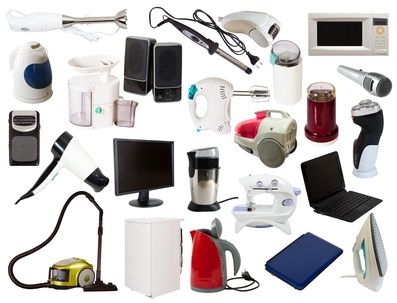
The CQC website regularly publishes new announcements about products that require CCC certification as well as products that can be certified with a Voluntary CQC Mark Certification. It is the responsibility of the shipper and/or manufacturer to carefully check every product and to fully understand the applicable regulations prior to shipping. Each product category of the Voluntary CQC Mark Certification has its own Certification Rules, which are based on the National GB Standards. The Certification Rules have a corresponding Implementation Rule which the product must comply with in order to get a Voluntary CQC Mark Certification. The Implementation Rules can be found on the official website of the CQC. New Voluntary CQC Mark Certification products and product categories are posted on the website frequently along with important information regarding certification application start dates.
You can find more information about the Voluntary CQC Mark Certification here.
Mr. Julian Busch has published numerous articles for magazines as well as online platforms regarding entry into the Chinese market and the requirements to enter the Chinese market. A summary of all his publications is available here.
If you have any questions regarding Voluntary CQC Mark Certification, please don’t hesitate to contact us any time. Write an email or call us directly. Call us directly (UK: +44 2071931135, Rest of Europe: +49-69-2713769150, US: +1 773 654-2673) or send us an email.
CQC: The CQC Publishes Information about the GB Standard for Covers of Switchgear and Control Gear Assemblies
According to the CQC the new GB-Standard, GB/T 20641-2014 (announced June 1, 2015), replaces the previous GB-Standard, GB/T 20641-2006. The new requirements for the product range “covers for low-voltage switchgear and control gear assemblies” are relevant to all manufacturers who wish to apply for a voluntary certification for a CQC certificate or who already possess such a certificate.
Manufacturers who choose to get the CQC Mark certification will minimize their chances of having problems at customs, and will have an advantage if CCC becomes mandatory in the future. Certificate holders with existing CQC Mark certificates of “covers for low-voltage switchgear and control gear assemblies” will need to update their certificate with reference to the new standard no later than December 31, 2016 to maintain the validity of their certificates. To update the certificates the affected manufacturers must present proof of the annual factory audits and that the new requirements were implemented within the factory. The products will also need to be re-tested to the new standards in a CQC authorized test lab in China. If the certificate is not updated to the new GB Standard, GB/T 20641-2014, by June 1, 2017 the certificate will be cancelled.

The CQC website regularly publishes new announcements about products that require CCC certification as well as products that can be certified with a Voluntary CQC Mark Certification. It is the responsibility of the shipper and/or manufacturer to carefully check every product and to fully understand the applicable regulations prior to shipping. Each product category of the Voluntary CQC Mark Certification has its own Certification Rules, which are based on the National GB Standards. The Certification Rules have a corresponding Implementation Rule which the product must comply with in order to get a Voluntary CQC Mark Certification. The Implementation Rules can be found on the official website of the CQC. New Voluntary CQC Mark Certification products and product categories are posted on the website frequently along with important information regarding certification application start dates.
You can find more information about the Voluntary CQC Mark Certification here.
Mr. Julian Busch has published numerous articles for magazines as well as online platforms regarding entry into the Chinese market and the requirements to enter the Chinese market. A summary of all his publications is available here.
If you have any questions regarding Voluntary CQC Mark Certification, please don’t hesitate to contact us any time. Write an email or call us directly. (UK: +44 2071931135, Rest of Europe: +49-69-2713769150, US: +1 773 654-2673)
CCC: Quicker factory audits through cooperation between CCAP and MPR China Certification GmbH
On 1st of July, 2015 the general manager of the subsidiary of MPR China Certification GmbH in Beijing, Ms. Li Huan and board member Wu Qiang met with the leading management of the CCAP (China Certification Centre for Automotive Products, Ch. “中 汽 认证 中心”) in Beijing. The CCAP was represented by Mr. Qiang Yi, head of the organization, by Mr. Niu Haijun and Mr. Ma Lin, both members of the leading management at CCAP for many years.
Subject of the meeting have been the effects of the new Chinese implementation rules for automotive components and the related time schedule issues of relevant international automotive suppliers and automobile manufacturers. According to the new regulations several automotive components have to be newly certified for the first time, resulting in a tight and challenging certification schedule for suppliers and car manufacturers this year. With this in mind MPR China Certification GmbH and the CCAP decided to further intensify the cooperation for a smooth coordination of the certification processes, aiming particularly for quicker factory audits carried out by the auditors. Because MPR China Certification GmbH/ China Certification Corporation and CCAP are organizing clearly more than 100 CCC-Audits together in 2015, MPR China Certification GmbH customers will enjoy enormous advantageous with regards to time and resource management for their certification. In most cases an audit will happen 1-2 months after application in China for customers of MPR China Certification GmbH. As a consequence the whole certification process with CCAP through MPR China Certification GmbH for most applicants can be completed within 3-4 months.
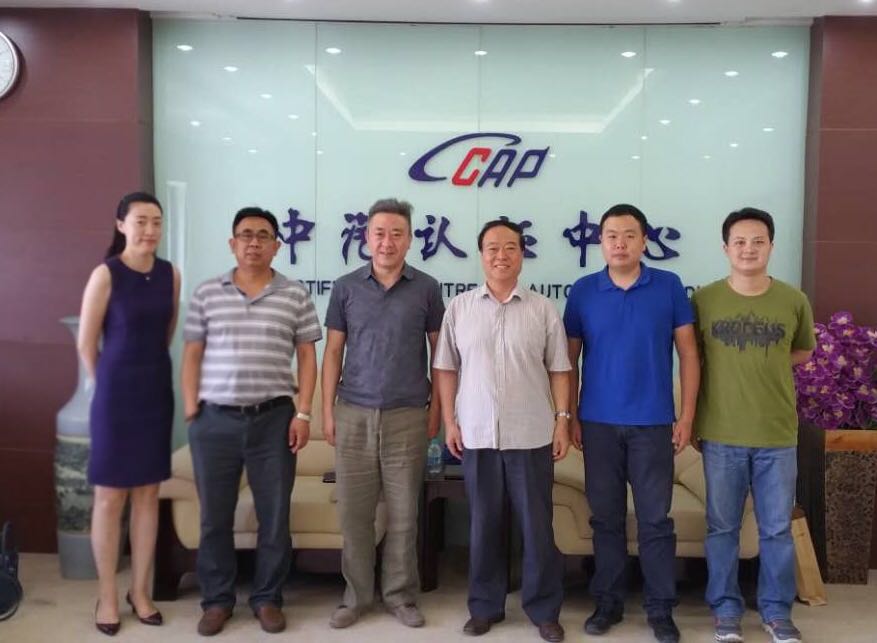 Due to the new regulations, the need for CCC certifications has risen sharply this year. The optimization of the certification process has the purpose to help suppliers stay in track with regards to the automobile manufacturers’ deadlines. By means of a quicker certification processing by MPR China Certification GmbH and the CCAP bottlenecks in the manufacturers’ production plans are supposed to be avoided.
Due to the new regulations, the need for CCC certifications has risen sharply this year. The optimization of the certification process has the purpose to help suppliers stay in track with regards to the automobile manufacturers’ deadlines. By means of a quicker certification processing by MPR China Certification GmbH and the CCAP bottlenecks in the manufacturers’ production plans are supposed to be avoided.
The MPR China Certification GmbH looks back on many years of excellent cooperation with the CCAP in managing the CCC certification process for automotive suppliers. On May 9th, 2013 the MPR China Certification GmbH has been awarded “Excellent certification partner company” by the managing director of CCAP, Mr. Qiang, on the occasion of the fifteen anniversary of the CCAP. Until today it has been the first and only award issued to a foreign certification company. Besides the partners are frequently organizing events. In 2014 the CCAP and MPR China Certification GmbH participated in the IZB (International Suppliers Fair) in Wolfsburg with a joint exhibition stand.
In August 2014 the Chinese Certification Authority CNCA (Certification and Accreditation Administration) published 15 new implementation rules for CCC certification of automotive parts. In January of 2015 the Chinese Certification Authorities CCAP (China Certification Centre for Automotive Products) and CQC (China Quality Certification Centre) published several more implementation rules for CCC certification. These regulations are more detailed than the ones published by the CNCA.
It is the responsibility of all CCC certificate holders and CCC applicants to understand and be in compliance with the most current implementation rules. There are many important changes that may need to be addressed by manufacturers. Some of the most important changes are in regards to new parts that will now require CCC, mandatory component part requirements, and new minimum size requirements for testing.
Are you seeking more information about the new implementation rules or are interested in our presentation about the regulatory updates? Please do not hesitate to contact us for more details and advice by phone (UK: +44 2071931135, Rest of Europe: +49 69 2713769150, US: +1 773 654-2673) or email with any questions you may have.
For more detailed information please download our free booklet “CCC Made Easy” here. You may also consider our book “A Brief Guide to CCC: China Compulsory Certification”, which can be ordered directly on Amazon here.
CCC: CQC Publishes Additional Requirements for Car Manufacturers regarding New Implementation Rules
In June of 2015, the Chinese certification authority CQC (China Quality Certification Centre, in Chinese: 中国质量认证中心) published an announcement on their website regarding the recently published CNCA implementation rules for CCC certification of complete cars and automotive components and to the corresponding requirements for updating CCC certificates.
The CQC announcement affects vehicle manufacturers holding CCC certificates for their cars and exporting them into the Chinese market. It states that CCC certificates for cars with SoP (“Start of Production”) earlier than December 31, 2015 showing the former CNCA regulation number can remain valid until EoP (“End of Production”). The manufacturer will be required to prepare a special conformity declaration for certain automotive components and submit it to CQC. However, the detailed requirements for this declaration are not yet defined by the announcement.
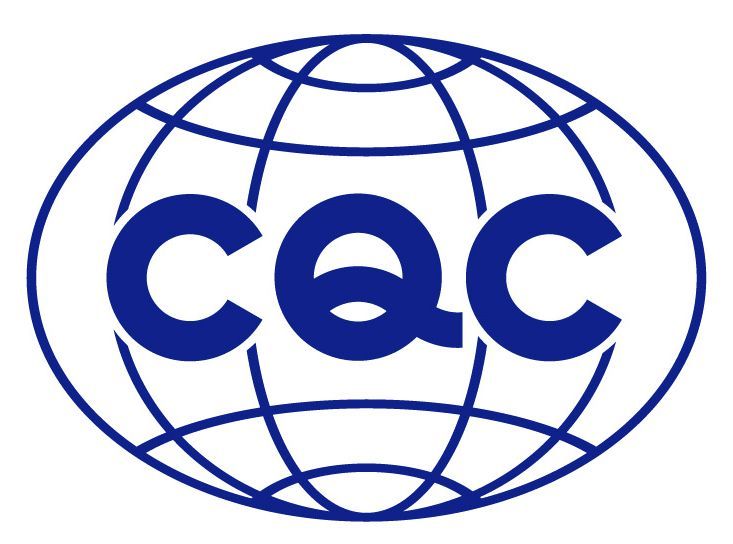
The regulations in this new announcement were developed by CQC only. This CQC announcement is not yet consistent with the rules of other certification bodies, such as CCAP, or even that of higher-ranking institutions, such as the CNCA. Before The CNCA, CCAP and CQC will issue a joint announcement it has to be assumed that CCC certification remains mandatory for all automotive spare parts which are exported to China – even if they are built into a car with SoP before December 31, 2015. Since the CQC notice is explicitly addressed to car manufacturers, the possible consequences for automotive suppliers are unknown and still in internal clarification process. Automotive suppliers should continue implementing the requirements in CNCA announcement number 31 from August 21, 2014.
Are you looking for more information regarding the Chinese regulations for China CCC certification? Do you have any questions about the new CNCA implementation rules?
Do you need more information in regards to updating the implementation rules on your CCC certificate? If so, please call or email us anytime.
We can be reached by phone (UK: +44 2071931135, US: +1 773 654-2673) or email for any questions or concerns you may have.
Check our website if you want more information regarding CCC certification, the CCC certification process, CCC costs, and more information about our all-inclusive CCC certification package. You may want to look at our references page to see what some our clients have to say about us.


